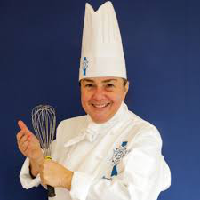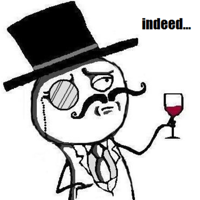Kevin Price MBTI Personality Type
Personality
What personality type is Kevin Price? Kevin Price is an ESTJ personality type in MBTI, 3w4 - so/sp - 316 in Enneagram, SCOEN in Big 5, LSE in Socionics.
Hi! It's me again xD Today I'm here to explain why Kevin is totally ESTJ. I'll justify, not only on cognitive functions, but also on loops and grips to explain it, and I'll justify on show's situations and character analysis. I'll also do some comparisons to ENTJ and why it might seem like Kevin is one, but he really is a much better fit for ESTJ. Fortunately, this is a character that we can see in all his facets: Unhealthy, loop, grip, and finally (albeit very briefly), healthy. This makes it much easier for an analysis to recognize that he is an ESTJ. As you know, ESTJ cognitive functions are Te-Si-Ne-Fi, (and ENTJ's are Te-Ni-Se-Fi), and we'll go from here. To start, we see a lot of dominant Te and inferior Fi on him. Te dom is obviously evident in his energy and motivation to go into action, and work on his goal in a focused and correct way, he planned how his mission should happen step by step, and he plans to follow it. "We are MEN now. It's our time to prove that we are worthy." *Insert You And Me (But Mostly Me) complete here.* "This is what I'm talking about, Elder. Our focus needs to be on our work. Do you understand how difficult this is gonna be?" "But this is GREAT, Elder Cunningham! If you've got some eager followers we can really turn things around here. I think we should start preparing which verses to teach them, and then we can prepare some excercises, and-" "So I worked. And I worked. And even when I studied Mormon stories and tought 'This doesn't make any sense', I KEPT WORKING." And then, we see his Fi inf throughout the play, but especially in the first act, where he is super cruel/passive-aggressive with Arnold, although Arnold does not notice it because of his low self-esteem. *Re-insert YAM(BMM) here.* "Look, just... Let ME do the talking, alright? You just sort of... SUPPORT what I'm talking about by going 'Oh wow!' and stuff like that." "What were you doing?! There's nothing in the Book of Mormon about steak knives!" We also see low Fi when he returns to the Elders after 'Sal Tlay Ka Siti', (although understandable, as he returns from literally witnessing a traumatizing scene and being, in fact, splattered with blood), in which, no matter how it can hurt Arnold and the rest of the Elders, he decides he wants to be transferred, he yells at everyone, he leaves them all, and when Arnold follows him, he yells at him again and says hurtful things to him. The lower function works mainly on an unconscious level, and as we see, Kevin doesn't seem to realize how cruel he is to Arnold until he tells him 'Stuck with you'. Before that, he doesn't really seem to see how cruel he's being, which would indicate that his low Fi would be working on an unconscious level, which fits perfectly. Thus we see that Te dom and Fi inf are present. But how do we know that he's an ESTJ, and not an ENTJ? To this, we will see how he uses more Si than Ni, and more Ne than Se, and we will also analyze his loop and his grip. Starting with Si. We see that his Te interacts very intimately with Si. And it's that he puts his Te to work literally based on his Si. Why does Kevin use his Te to carefully plan his mission, to follow his plan so passionately, step by step, etc.? Well, his motivation comes from nothing more and nothing less than his Si. It comes from his desire to win heaven and be able to live for eternity in Orlando, in an amusement park that he liked when he was 9 years old. Also, he makes sure to carefully follow every rule he learned throughout all his childhood and adolescence, showing himself to be, in addition to someone traditional, someone who knows that in the past, those rules have worked and he has adopted them as his lifestyle, and that, if he follows them correctly, those same rules are also what could lead him to his dream of spending eternity in Orlando. We also see him grieve over a mistake he made in his childhood, blaming his brother for eating a donut that he ate. He promised himself not to make any more mistakes like this in the future, forcing himself to strictly follow the rules with his Te, but when he realizes that he sinned again, he reproaches himself by reliving his past mistake. As we can see, basically the fuel for his Te is his Si. Si helps Te to act and make decisions based on his past experiences. In fact, after 'I believe', when he has gone into a grip on the Kafe, he explains that everything he believed, everything he had lived through in the past, everything seemed to have been a lie, and everything collapses. He can no longer trust everything he knew, his experiences, he could no longer trust and rely on his Si. And when his Si collapses, his Te does too, thus nullifying his Te (Breaking rules, being unproductive and giving up effort, after all, he no longer has the Te fuel he needed, which was confidence in his Si), which is a perfect fit, because then, when his dominant Te cancels out, his Fi comes to take its place in an insane way, thus entering grip. +




















